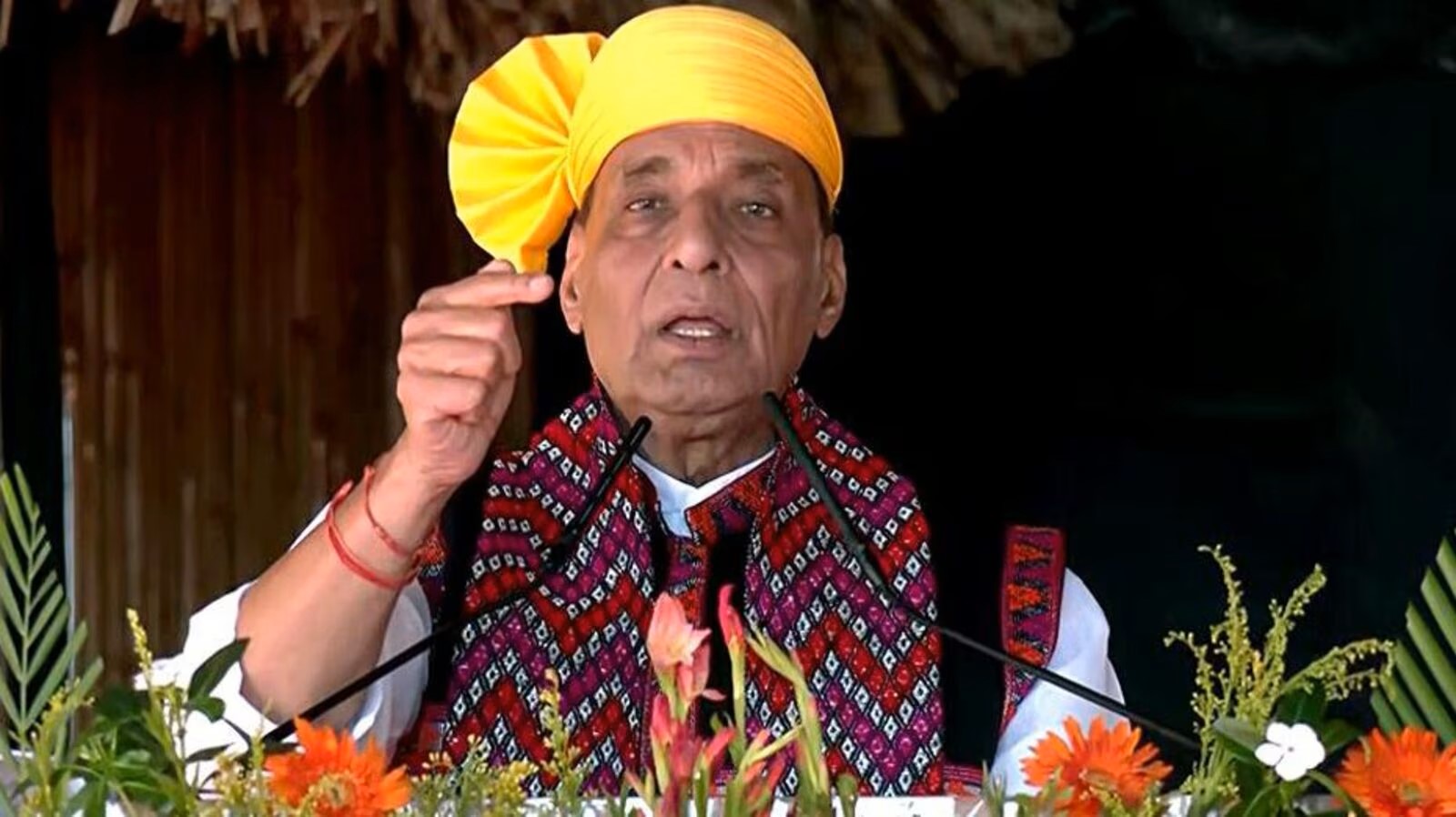Union Defense Minister Rajnath Singh shared a poignant account of his experience during the Emergency imposed by the Indira Gandhi-led Congress government in India. At the age of 24, Singh was actively involved in the opposition movement against the Emergency, serving as a convenor for Mirzapur-Sonbhadra during the JP movement that lasted from June 1975 to March 1977.
 Singh recounted the hardship he endured, including being incarcerated for 18 months without even being granted parole to attend his mother’s final rites. He highlighted the irony of opposition parties accusing the ruling BJP of dictatorship while his own experience vividly illustrated the authoritarian nature of the Emergency regime.
Singh recounted the hardship he endured, including being incarcerated for 18 months without even being granted parole to attend his mother’s final rites. He highlighted the irony of opposition parties accusing the ruling BJP of dictatorship while his own experience vividly illustrated the authoritarian nature of the Emergency regime.
During his time in jail, Singh reminisced about the resilience and unity among the political detainees, emphasizing how they continued to raise their voices against tyranny. Despite the harsh conditions, including solitary confinement and limited provisions, Singh’s determination remained unshaken. He recalled the solidarity among inmates and the unwavering spirit to resist the oppressive regime.
Tragically, Singh’s mother passed away due to a brain haemorrhage while he was still incarcerated, unable to bid her a final farewell or participate in her last rites. Despite these personal tragedies and challenges, Singh remained steadfast in his commitment to the cause, continuing to mobilize against the Emergency even after his release.
Reflecting on his experiences, Singh expressed gratitude for his unwavering faith and resilience in the face of adversity, acknowledging the role of divine providence in guiding him through the trials of life. His narrative serves as a powerful reminder of the sacrifices made by countless individuals during one of the darkest periods in India’s democratic history.



